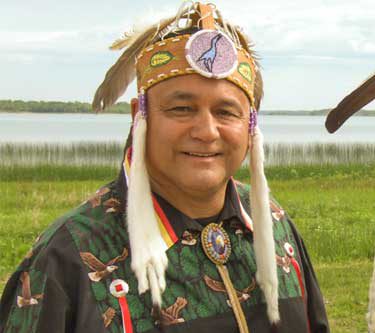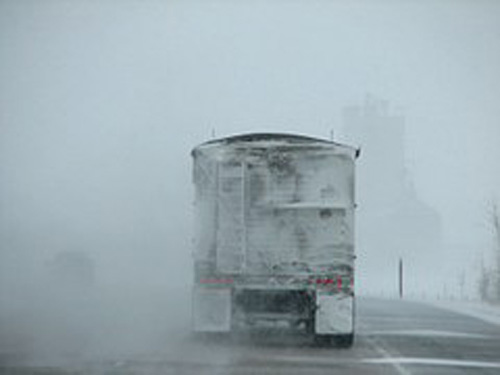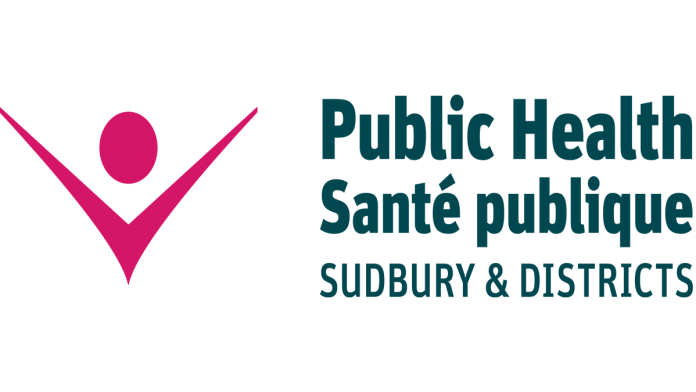NORTH BAY – A second round of voting on the proposed First Nations Governance Agreement (FNGA) between First Nations and the federal government was supposed to be complete by February 27, but like many things upended by the COVID-19 pandemic, most communities have postponed their votes.
The FNGA has been touted by proponents as finally getting their communities out from under the patriarchal provisions of the colonial era-inspired Indian Act.
“For the 47 years I have been involved we have been talking about getting Indian Affairs off our backs. We have an opportunity here now to do this,” said Anishinabek Nation Governance Commissioner Patrick Madahbee, himself a past chief of Aundeck Omni Kaning and Anishinabek Nation as he thanked the chiefs for appointing him to the ex officio position.
In conversation with The Expositor, Mr. Madahbee was candid in acknowledging some of the arguments that have been made against endorsing the FNGA, which opponents fear places the sovereign First Nations under the Crown while in return only acknowledging some of the rights and jurisdiction that First Nations communities have by inherent right.
“We can wait for years and years and spend millions of dollars on fighting the federal government through the courts,” he said, noting the result was likely to end up being right in the same place—or perhaps worse, given the unpredictability of litigating Indigenous issues in a colonial-based legal system. “We will win in the end,” he asserted, “but we have to move ahead. There have already been too many lost opportunities, so much damage done to our people, we need control over our lives now.”
“I want to tell you up front that if I personally did not believe in this, I would not be championing this to you,” said Mr. Madahbee in an open letter to the Anishinabek Nation community members. “I have not fought for our rights as Anishinabek all of my adult life to now be taking us down a treacherous path. Besides myself, I have family, fellow community members, and all of you that I respect and care for, that I would never betray by advocating for something if I did not whole-heartedly believe it would move us further down the path to taking greater control of our own lives and restoring our jurisdiction and authority.”
Mr. Madahbee points out that for the First Nations that approve the Anishinabek Nation Fiscal Agreement, it will provide substantially more money for governance-related activities—“seven-times more funding than we receive now under the Indian Act for band support funding. This increase sounds like a lot but remember that our First Nations governance under the Indian Act has been shamefully underfunded for decades. The increased money fills that gap and recognizes that our First Nations will be exercising law-making translate authorities outlined in the proposed Governance Agreement. There will also be annual increases. No portion of First Nation funding goes to the collective body called the Anishinabek Nation Government or to any other body. What your First Nation-specific offer is translates to the amount your First Nation will get. Also, the funding is a grant. First Nations are able to use the money in whatever way you decide and none of it is returned.”
Mr. Madahbee dismisses the critics opposed to the agreement. “Armchair experts are everywhere,” he said, noting that most opponents are “academics, consultants and critics—most of whom have never been on band council, never lived on a First Nation or ever been involved in operating anything on a First Nation.”
But the two-tier form of the vote has not helped with allaying those fears. Unlike federal, provincial or municipal elections, Anishinabek Nation communities must hit a high bar of participation in order for the results to be certified.
“It’s tough,” said Anishinabek Nation Grand Council Chief Glen Hare. “They are asking for 25 percent participation. They don’t have that kind of rule for other elections. I can understand people being suspicious of being asked again and again. People might think ‘if they don’t get the result they want they just hold another election until they do.’ In their place, I might be suspicious too.” That is not the case, the grand council chief insists—this second round of voting will be the deciding factor, whatever the percentage participation.
Should a First Nation decide they don’t want to be part of the agreement after five years, they will have the option to opt-out, however.
For the agreement to go into effect, 12 of the 39 Anishinabek Nation member communities must ratify the agreement. “We are closing in on the numbers,” said Grand Council Chief Hare. “Four are going ahead, two are just about to, that puts us up to six, then eight others are putting forward BCRs (band council resolutions) and letters of intent. So, we are strongly going forward.” Grand Council Chief Hare noted, however, that the decision ultimately resides in the individual First Nation communities themselves.
Whitefish River First Nation was the first Manitoulin First Nation to vote on the ratification in a second round of voting, turning it down by a small margin last month. Zhiibaahaasing First Nation has already signaled its participation.
Aundeck Omni Kaning is the next on the line, having announced a restart of its ratification process for the second vote, to take place at the end of May (May 27 for advance poll, 6 to 8 pm; May 30 for the main poll, 9 am to 6 pm) at the community centre. An earlier vote failed to meet the 25 percent threshold and barely failed by four votes.
Many communities are struggling with the challenge of holding votes during the pandemic, noted Grand Council Chief Hare.





